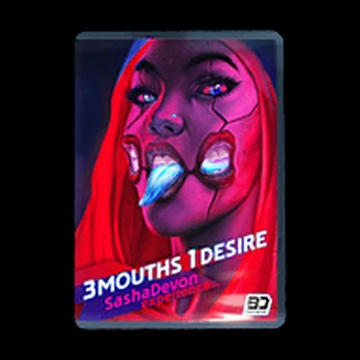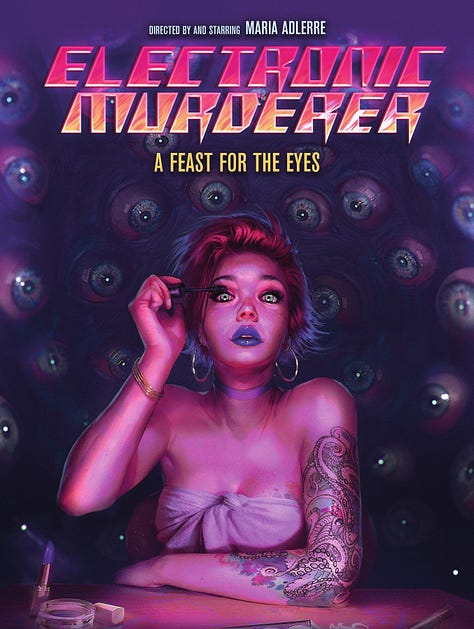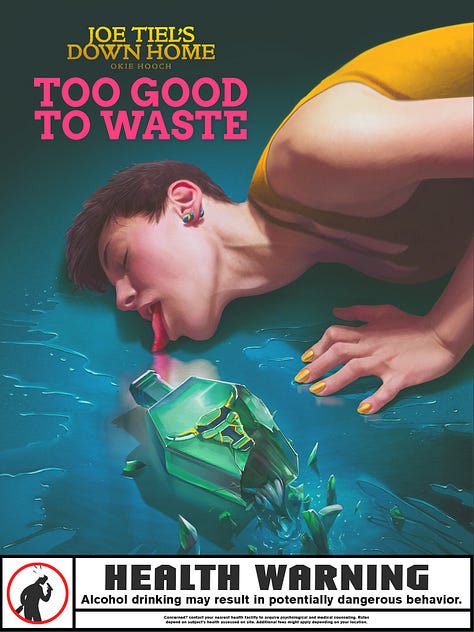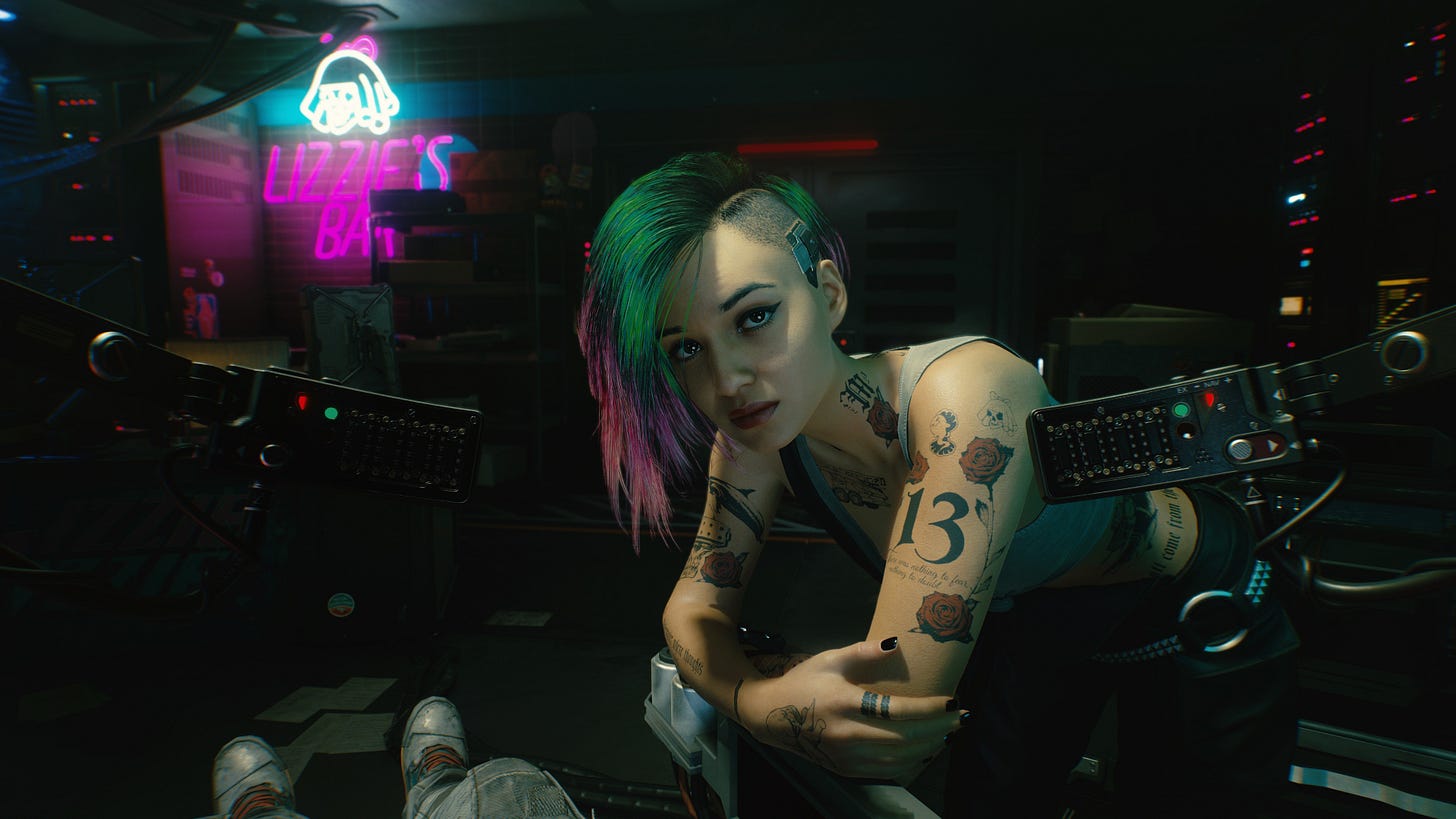Is it wrong to date NPCs?
I don’t mean this metaphorically
Longtime readers will know that I like to dive into the weirder corners of Reddit from time to time. Anonymity is the platform’s greatest strength; people share wild stories they otherwise wouldn’t, and sometimes these stories are even true.
Anyway, last week it was a guy posting in the casual subreddit for the masterpiece blockbuster of a game Cyberpunk 2077, r/LowSodiumCyberpunk. This poor lad had got in trouble with his new girlfriend for enthusiastically pursuing one of the handful of romances the game lets you choose from with its NPCs.1 He’d romanced Judy Álvarez, a cute, pink-haired hacker and programmer who is part of one of the game’s more idealistic street gangs.
In Cyberpunk, you can text and call people over your mobile (which is actually just an implant in your head), and after you successfully seduce a character, they will text you in-game from time to time, just to see what’s up. Judy, for example, will drunk text you, or warn you about her overprotective grandma. It’s all very immersive, and not unlike the heady early days of a real relationship.
Too real for this guy’s girlfriend. His post:
So I’ve been replaying Cyberpunk 2077 recently, loaded with mods to make it actually feel immersive. Not the trashy thirst-bait mods people meme about, I mean stuff that makes characters feel more like actual people. Less one-dimensional. Better pacing, more life between missions, more believability. That’s the kind of stuff I enjoy in a game.
One of those mods is the “Judy Romance Extended Messages” mod. It just adds more texts from Judy if you romanced her. They’re not all explicit, not wild, just little flavor messages that make it feel like your character actually has a relationship that continues past one quest and a fade-to-black scene. It’s well-written and fits the tone of the game perfectly.
So far, so innocent, even if it does feel like he doth protest too much. “They’re not all explicit”, eh? “Just little flavor messages”, eh? The redditor continues:
Anyway, girlfriend is staying over with me last night and I woke up earlier and started playing. She wakes up and is apparently watching me play, and apparently was watching in the middle of one of the text exchanges with Judy. Then hits me with a “Who the hell is Judy?”
I say, “A character in the game? Why?”
She stares at me and goes, “Why the fuck is she texting you?”
I explain the mod and the concept that Judy isn’t real. Calmly. Matter-of-fact. Even pull up the mod description on Nexus to show her it’s just flavor text for immersion. That somehow makes it worse. Suddenly it’s “emotional cheating” and I’m “giving energy to a fantasy woman instead of a real relationship.”
Uh-oh…
At this point I realize we’re not having a rational conversation. She’s legitimately jealous of a video game character. Not even in a joking way. Fully serious. Like she caught me sexting someone named Judy. I tell her again that Judy is literally scripted dialogue in a mod I downloaded for more story content. She says I’m being manipulative.
At multiple points in this argument she even went as far as to go through the texts in game, and accuse me of using some kind of overlay and that I was texting a real woman. Almost had a meltdown when coming across a lewd image Judy sent me with the mod.
Anyways, I’m not about that level of mindless insecurity and bizarre reaction to an RPG so I might be single pretty soon!
This whole post still gets me every time I read it. Men are from Mars, women are from Venus, etc etc.
I don’t really blame this guy’s girlfriend, in a way. Cyberpunk is quite sexy. It’s very violent, set in a very cynical world, with adult storylines about political corruption, free will and AI, vigilantism, gang crime, child abuse. It would be weird if this world didn’t have quite explicit sexual politics and content, so it does. Add to that the fact that this guy downloaded a mod for his game that meant the NPCs would send him nudes – which I think is the real offence here – and his girlfriend is probably justified in getting the ick, if not necessarily accusing him of “giving energy to a fantasy woman”. (An interesting quirk which I can’t help but mention: Judy, the Cyperpunk character, is a lesbian and is hardcoded in the game to only date female player characters.2 So this guy was also playing as a woman or femme character – he confirmed in the Reddit comments that he is male in real life.)
The game also has a very irreverent attitude to mass marketing and the invasion of the corporate into the personal. Cyberpunk 2077 takes place in, well, a cyberpunk future version of a California megalopolis called Night City where government has largely been replaced by hypercapitalist zaibatsu and megacorps, so almost every public space you enter within the dystopian city limits has been slapped with adverts. Very violent, very horny adverts.






But amid all this tongue-in-cheek smut, the game’s romances are played straight. They’re well written and slow-burning – it takes several hours of going on missions together, choosing the flirty dialogue options, and making the right in-game decisions (harder than you might think) to woo those NPCs. They’re actually much less ridiculous than the rest of the game, which I think is the whole problem – they’re convincingly realistic and to an outsider the process could certainly seem emotionally manipulative. It’s one thing to sit and watch over your boyfriend’s shoulder as he mows down a legion of heavies with an assault rifle, and quite another to watch him exchange texts with a pretend girl in a pretend world.
This isn’t hugely unusual. Most big RPGs give you several romance options these days, though I think Cyberpunk does it better than most. Bioware games have long let you court members of your party, be they humans, elves, qunari or asari. The Witcher 3 basically forces you into a love triangle with two hot sorceresses (nice!), while Skyrim offered the chaste, staid option of a marriage at the Temple of Mara and, if you bought the right DLC, the chance to adopt one of the irritating Nordic urchins who populate the game’s cities. In Assassin’s Creed Valhalla, meanwhile, you can sleep with your disabled brother’s wife, and in Fallout 4, you can date the irradiated corpse of a man who was made immortal by the nuclear holocaust two centuries earlier.
Let’s face it: many of these storylines are simple heteronormative fantasies, often aimed at young men (not including the corpse). The NPCs, overwhelmingly hot and skinny, are there to be picked and romanced by the character at will. Better written games, though, have more complex relationships at their hearts: Firewatch was a genuinely moving and beautiful game which centred on the bittersweet relationship – friendly but with the potential for more – of two fire lookout volunteers in Shoshone National Forest in Wyoming in 1989. The volunteers can talk via walkie-talkie, but they don’t meet face to face even as they begin to open up to one another over the course of a lonely, idyllic summer. Likewise, the superlative Disco Elysium’s great emotional reveal is that the player character Harry DuBois has drunk and dosed himself into amnesia after his fiancée walked out on him. It’s a fucking devastating scene, which only works because of the quality of the game’s writing.
The “relationships” in these games are sexual to varying degrees of controversy, most of which would barely trouble a film or a novel. Sex in games has always been somehow anathema to the mainstream.
The most infamous example of this was Hot Coffee – the minigame in 2004’s Grand Theft Auto: San Andreas which allowed the player to exercise very basic control over the main character CJ while he had sex with his girlfriend (the name Hot Coffee, uncharacteristically witty for the work of GTA fans, is a reference to the fact that in the game, you can euphemistically ask your date into your apartment “for a cup of coffee” if the date has gone well).
The minigame was coded into San Andreas but then removed from its final iteration when developer Rockstar Games concluded it would be too explicit for the game to retain its Mature rating. The devs wanted to shock people, and after all the violence and bad language and criminality depicted in the previous few instalments in the series, studio head Sam Houser reckoned explicit sex was the only way to do so.
Houser and his team lost their nerve and made Hot Coffee inaccessible to the player, though the decision was made late enough in the game’s development cycle that they left the code in the game, locked away – Houser claimed it would have taken too long to remove it entirely. Upon release, however, a Dutch modder quickly found and accessed the “hidden” minigame in the game’s code nonetheless, publicising it online.
The result was a shitstorm of legal action against Rockstar. A class action suit was brought against the game’s American publisher, Take-Two Interactive, while the game regulator, the ESRB, changed the game’s rating from Mature to Adults Only 18+. Four of the largest retailers in the USA – Walmart, Target, Best Buy and Circuit City – pulled San Andreas from their shelves, and Rockstar was forced to recall and reissue copies of the game with the Hot Coffee code removed. Hauser was hauled in front of the Federal Trade Commission to plead that the company wasn’t trying to dupe the ESRB. Take-Two ended up paying $20 million to settle the lawsuit. Even Hillary Clinton, god bless her, got in on the action by introducing a new bill into Congress called the Family Entertainment Protection Act (it failed to pass).
At a time when video games were largely still seen as the purview of children, the Hot Coffee scandal was huge. Eurogamer called it “gaming’s greatest sex scandal”, as though there had ever been any others. Forget the fact San Andreas was a game where you slung drugs, trafficked weapons, stole cars and committed drive-by shootings; forget the fact that the blocky, pixelated, genital-less characters were still fully clothed in the minigame and that it was played for laughs. The accidental inclusion of a scrapped sex scene was enough to stir the fury of America’s cross-party political establishment.
In the end, it was that Dutch modder who expressed the contradiction best. “Why would a 17-year-old be allowed to run around the city bearing weapons, a game in which you’re free to shoot cops and beat up women but in which you’re not allowed to make love to his girlfriend after dating her for a while?” he asked. “It baffles me how some Americans find two people making love more damaging for a 17-year-old than all the violence in the game.”3
Interestingly, in the next Grand Theft Auto game, you had to go on dates to advance the storyline – the climax saw protagonist Niko Bellic forced to choose between saving his girlfriend and his cousin. But there were no sex scenes.
Here’s the thing. It would be weird if a player didn’t have some sort of emotional investment in in-game relationships. Anything less would stray into the pornographic. The problem comes with the territory – with the issue of designing within an artform where the human player always has to win, and always has to have control over the game. By definition, NPCs will always be secondary to the player character. Always disposable.
Back in 2014, the critic Austin Walker articulated this tension in Paste magazine against the backdrop of two recent games, Watch Dogs and Middle-Earth: Shadow of Mordor. Walker talked about how he decided whether or not to kill NPCs he came across – how in Watch Dogs, learning more about a despicable character had persuaded Walker to shoot him, even after Walker had committed to playing through the game without killing anyone. In Shadow of Mordor, on the other hand, he wrote about how the game’s much-lauded “Nemesis” system – too complicated to explain, but there’s a summary here – had humanised the orcs he was fighting against, and made him relate to his enemies. “These NPCs are both systemically and aesthetically rendered as complicated, individual agents,” Walker wrote, “instead of just sacks of experience points to be beaten and tossed aside.”
Interactions with NPCs, including romancing them, quickly become a question of agency, and there’s something oddly and unusually agentic about embarking on a “relationship” with a character in a video game. This is why it’s different to watching a film with a sex scene, for example – because in-game you generally choose to make your character have sex with an NPC. And the person, the player character, represents you. It might even look like you, if you’re one of those old-fashioned types who still likes to design their avatar to resemble themselves IRL.
As the writing gets better and better, these characters feel more and more real – and we can control how we interact with them. You’re not cheating on your partner if you watch a sex scene in a film or on TV, but if you have the option to mess around in a game, and you take it… is there something there?
I’m not really convinced, myself, but I don’t think that that guy’s girlfriend on Reddit was totally unjustified (just a bit). There’s certainly a nugget of logic behind getting jealous of someone who isn’t real, if they are portrayed realistically enough. That guy probably should have been more careful with his modlist.
And besides, everyone knows Panam Palmer is a better pick than Judy, anyway.
That’s non-player characters, for my older readers and those who preferred Vitamin D to gaming as kids.
I find this fascinating in itself. There are four romances in Cyberpunk, one for each gender of character and then two who swing both ways. Players who ask for mods to change the canonical sexuality of the restricted two NPCs are often chastised in forums in a way that suggests the community thinks it’s important to respect these characters’ fictional sexual orientations.
“Making love” might be a bit of a stretch, but I agree with his sentiment.








I thought this was going to be about fictosexuality, which it isn't but is kind of tangentially related? And I think would definitely feed into that concept--which will definitely become a bigger issue in the future, I think. It certainly adds basis to how these types of imaginary social worlds/relationships are supported by official materials in some cases.
I know there are plenty of fictosexuals who are in relationships in the real world as well as with their fictional character, and the real life partner seems fine with it, so perhaps the Reddit OP will find someone who is fine with it at some point...
I've experienced this myself first-hand -- though my girlfriend was also a player in the campaign, so maybe her angry reaction to my character's relationship with the NPC was just very intense roleplaying.